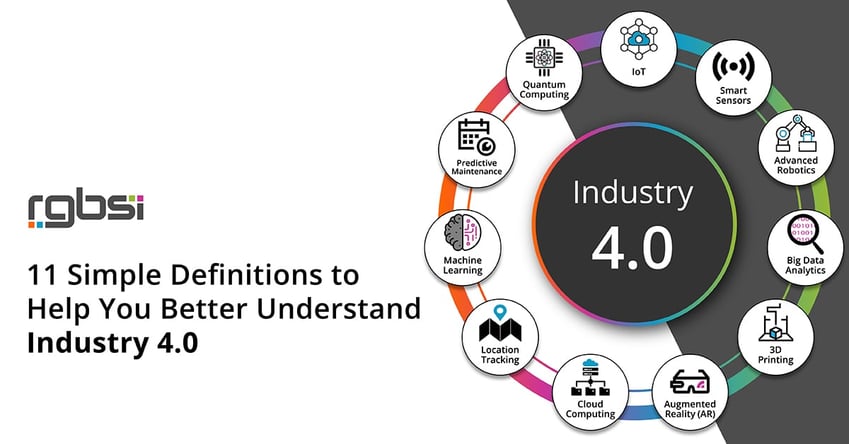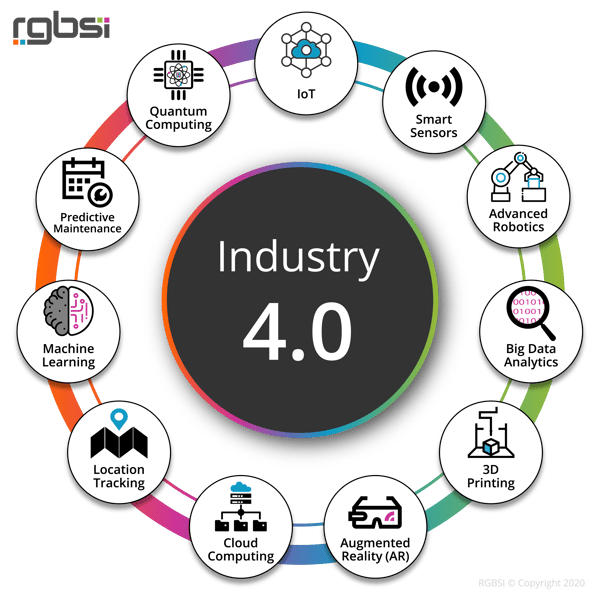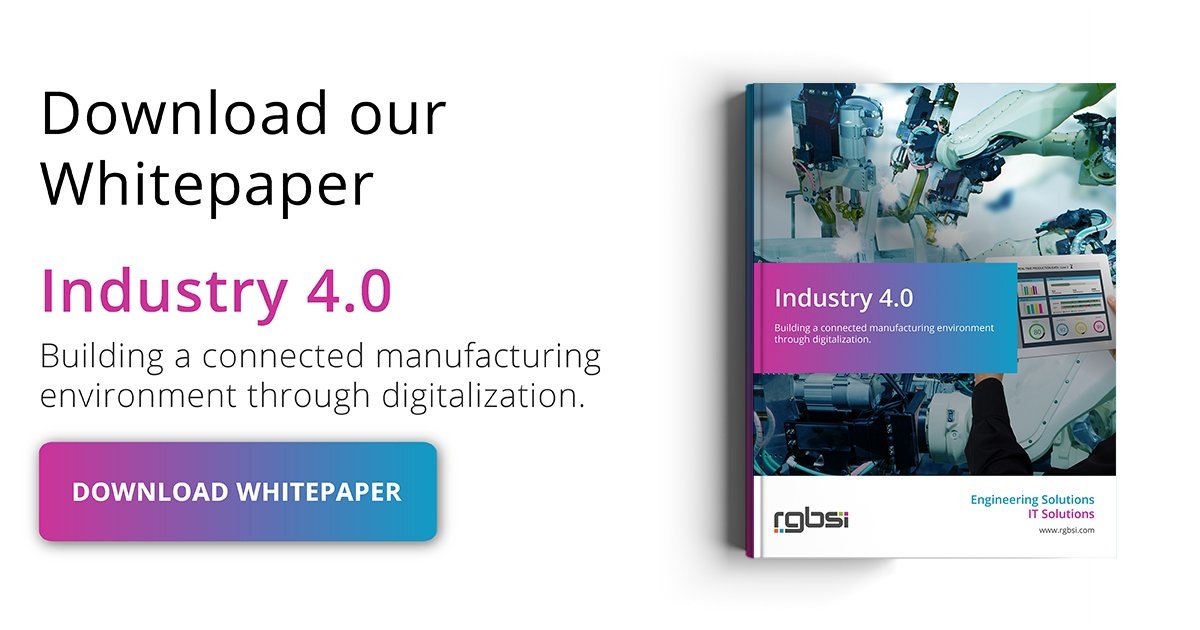
If you search “Industry 4.0” on Google, you will find any number of sprawling and unnecessarily complicated definitions to choose from. Here is the simplest one you will ever find:
Industry 4.0 - the continued application of advanced computing technology to global industries.
That’s it. Every technology mentioned under the umbrella term of Industry 4.0 is an application of advanced computing technology to the many processes of global industries.
Oft-mentioned as technologies of Industry 4.0 include: smart sensors, advanced robotics, big data analytics, 3D printing, augmented reality (AR), cloud computing, location tracking, machine learning, predictive maintenance, quantum computing, and Internet of Things (IoT). The benefits are seen across industry applications. For example, detailed levels of analysis are viewed as a value-added benefit of Industry 4.0 within manufacturing sectors.
If we break down these 11 technologies, it is easy to see how they are all centered on advanced computing technologies. Here are a few simple definitions to help you better understand Industry 4.0.
1. IoT
The Internet of Things (IoT) is a term for the application of advanced computing technology to networked electronic devices with embedded sensors.
2. Smart sensors
A smart sensor is a device that uses a transducer to collect a specific type of data from a physical environment (outside or inside). It takes that information and uses computing resources that are built in to the sensor to perform a predefined and programmed function on the specified type of data it is collecting. It then passes that data on via a networked connection.
Learn more about smart sensors
3. Advanced robotics
Advanced robotics are a combination of sophisticated programming and powerful hardware that make use of sensor technology (including ultrasonic, touch, and light sensors) to interact with the real world around it. In Industry 4.0, advanced robotics is used in manufacturing facilities that sometimes run without human oversight around the clock.
Learn more about advanced robotics
4. Big data analytics
Big data analytics is the use of advanced computing technologies on huge data sets to discover valuable correlations, pattern trends, and preferences so that companies can make better business decisions. In Industry 4.0, big data analytics is used in a few areas including in smart factories, where sensor data from production machinery is analyzed to predict when maintenance and repair operations will be needed.
Learn more about big data analytics
5. 3D printing
Also known as additive manufacturing, 3D printing refers to the manufacturing of objects by computer controlled robots that deposit layers of material to form an object from a computer-aided design (CAD). In Industry 4.0, additive manufacturing is combined with powerful 3D software known as generative design to redesign products with less material and more complex geometry to improve efficiency.
Learn more about big data analytics

6. Augmented reality
Augmented reality leverages advanced computing and a combination of optical hardware components to overlay digital images or 3D models onto the physical world. In Industry 4.0, augmented reality is used for training industrial workers on controllers and assembly lines, or for maintenance and repair operations.
Learn more about augmented reality
7. Cloud computing
Cloud computing is the use of high bandwidth networks to perform computing tasks on a networked server rather than a local machine. In Industry 4.0, cloud computing is used to power the industrial internet of things (IIoT).
Learn more about cloud computing
8. Location tracking
Location tracking refers to advanced computing technologies that locate, track, and record the movement of people and objects. In Industry 4.0, location tracking technology such as GPS is used to keep track of industrial assets such as mining or construction equipment in architecture, engineering, and construction (AEC.).
Learn more about location tracking
9. Machine learning
Machine learning (ML), a subset of artificial intelligence (AI), is the application of algorithms and statistical models used in advanced computing to perform a specific task without programmed instructions. ML applications rely on inference and patterns in data to perform a specified task.
Learn more about machine learning
10. Predictive maintenance
Predictive maintenance is a continuous or periodic monitoring and evaluation of the condition of industrial equipment while it is in use. In Industry 4.0, predictive maintenance is mainly used on industrial machinery in factories and sometimes on job sites of construction and mining operations.
Learn more about predictive maintenance
11. Quantum Computing
Quantum computing is a sophisticated mix of hardware and software that performs predictive calculations based on the probability of information received instead of calculating states of information after the fact via traditional computers. In industry 4.0, quantum computing is used by researchers to discover new materials and new chemical combinations for drug treatments.
Learn more about quantum computing
About RGBSI
At RGBSI, we deliver total workforce management, engineering, quality lifecycle management, and IT solutions that provide strategic partnership for organizations of all sizes.
Engineering Solutions
As an organization of engineering experts, we understand the importance of modernization. By pairing modern technology with design expertise, we elevate fundamental engineering principles to accommodate growing product complexity requirements. We work with clients to unlock the full potential of their products and enable future innovation. Learn more about our automation and digital engineering services.
IT Solutions
We work with clients to support IT related areas of application development, ERP, infrastructure, project management, and digital engineering.
Learn more about our IT solutions.











